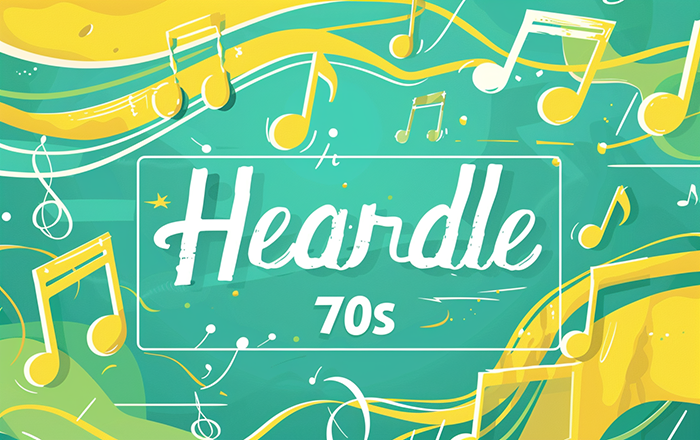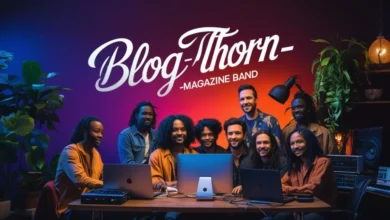Heardle 70s: Reliving the Golden Age of Music Through a Modern Game

Introduction: When Nostalgia Meets Innovation
Heardle 70s ,there’s something timeless about 70s music. Whether it’s the groove of disco, the power of classic rock, or the soulfulness of Motown, the decade gave us songs that remain etched in global memory. Now imagine mixing this rich musical history with the playful mechanics of a guessing game. That’s exactly what Heardle 70s offers—a delightful blend of nostalgia and entertainment, all wrapped up in a digital format that keeps players both challenged and smiling.
At its core, Heardle 70s is an offshoot of the original Heardle game, which was inspired by Wordle but swapped words for music. Instead of spelling out letters, you guess songs by listening to just a few seconds of the intro. With Heardle 70s, however, you’re transported to a decade known for bell-bottoms, vinyl records, and unforgettable hits. It’s not just a game—it’s a trip back in time.
What makes it even more engaging is the fact that people of all ages can play. Older generations find themselves reconnecting with their youth, while younger ones get a crash course in music history that textbooks often skip. Heardle 70s is like opening a jukebox from 1975 and letting the past serenade you, one challenge at a time.
The Concept of Heardle: From Modern Game to Retro Twist

Before diving into the unique charm of Heardle 70s, it’s important to understand the mechanics of the game itself. Inspired by the massive success of Wordle, Heardle took the simple idea of daily challenges and applied it to music. Instead of guessing letters, you get to guess songs—starting with just a second of audio. If you don’t get it right, the game extends the clip gradually until the answer becomes clearer.
Heardle 70s takes this already exciting framework and sets strict boundaries: the songs must come from the 1970s. This limitation, far from being restrictive, actually adds depth to the experience. It forces players to tap into a specific archive of memory, scanning their mental playlists for everything from Fleetwood Mac to ABBA.
The 70s were an eclectic time for music, with genres blossoming side by side. Rock anthems like Led Zeppelin’s “Stairway to Heaven” coexisted with disco fever brought by the Bee Gees. Heardle 70s brilliantly captures this diversity. Every day is a surprise—one moment you’re grooving to funk, the next you’re challenged by a soft rock ballad. That unpredictability is part of the game’s magic.
Interestingly, the format encourages learning as much as guessing. Even if you miss the correct answer, the game introduces you to new classics—or reminds you of forgotten gems. Over time, players build not only sharper recall but also deeper appreciation for the richness of 70s music.
Why the 70s? A Decade Worth Celebrating
Some might wonder, why focus exclusively on the 70s when music spans so many vibrant decades? The answer lies in the cultural weight of the era. The 70s were more than just another chapter in music history; they were a turning point. Artists began experimenting with sounds, instruments, and production techniques that continue to shape music today.
Disco transformed dance floors into cultural phenomena. Punk rock challenged societal norms with raw, unapologetic energy. Progressive rock bands stretched the boundaries of what was possible in song length and complexity. Meanwhile, soul and funk carved grooves that would later influence hip-hop and R&B.
Heardle 70s, therefore, doesn’t just give us a game—it gives us access to a museum of sound. Each track represents a moment in time, reflecting the emotions, struggles, and joys of the decade. The political unrest, the cultural revolutions, the economic shifts—all of these realities are somehow embedded in the music of the 70s.
When you guess a track correctly in Heardle 70s, it feels like more than a win. It’s a small victory in memory, a spark of recognition that connects you not just to the music, but to the era itself. That’s why limiting the game to one decade doesn’t make it narrower; it makes it deeper, almost like curating a gallery exhibit instead of throwing random pieces on a wall.
The Joy of Playing Heardle 70s With Friends
One of the great strengths of Heardle games is their social nature. Much like Wordle became a daily ritual shared on social media, Heardle 70s invites people to show off their musical instincts. But beyond sharing results, the game works beautifully in group settings. Imagine a family gathered around a laptop or a group of friends at a party, all trying to guess the song from a few beats of the intro.
For older generations who lived through the 70s, the game becomes a nostalgic time machine. They might instantly recognize the opening notes of Elton John or Earth, Wind & Fire. For younger players, there’s a sense of awe in realizing just how powerful and influential these songs remain. It sparks conversation, storytelling, and even playful competition.
The communal aspect also underscores one of the most overlooked values of 70s music: its universal accessibility. Songs from the decade don’t feel stuck in time. They remain alive and relevant, transcending generations. Heardle 70s provides the perfect platform for this timelessness to shine through.
It’s not just a guessing game—it’s an excuse to connect. To sit down, laugh at wrong guesses, celebrate correct ones, and bond over melodies that refuse to fade away. In an age where entertainment often isolates us, Heardle 70s brings us together through music.
How Heardle 70s Sparks Musical Curiosity
Another fascinating dimension of Heardle 70s is its power to spark curiosity about music history. Many younger players may not be familiar with songs outside their playlists. By playing, they stumble upon artists who defined the soundscape of the past. A teenager may miss a guess on “Hotel California” but then find themselves binge-listening to the Eagles afterward.
This learning-through-play is both subtle and effective. Unlike textbooks or lectures, Heardle 70s makes the discovery process engaging. Every wrong guess becomes an invitation to explore, while every right one boosts confidence and curiosity.
For aspiring musicians, the game is a treasure chest of inspiration. Analyzing why certain intros are so recognizable can teach valuable lessons in songwriting and production. After all, what makes a song iconic often starts with its first few seconds. Heardle 70s highlights this truth, showing how 70s artists mastered the art of grabbing attention instantly.
In this way, the game doubles as a cultural bridge. It educates while entertaining, proving that learning doesn’t always have to be dry or academic. With Heardle 70s, history sings to you—literally.
The Future of Heardle 70s: More Than Just a Game
While Heardle 70s is already a delight, its potential goes beyond simple daily challenges. Imagine expansions where the game dives into specific subgenres like 70s disco-only or 70s classic rock-only editions. Or collaborative features where friends can build playlists based on their game history.
There’s also room for educational collaborations. Schools teaching music appreciation could easily integrate Heardle 70s into lessons, turning dry lectures into interactive activities. Museums or streaming platforms could even partner with the game to highlight curated collections.
What’s exciting is that Heardle 70s shows how technology can keep cultural memory alive. Decades-old songs get new life because a game format makes them accessible and exciting again. It’s a reminder that nostalgia is not about living in the past but about keeping its treasures relevant in the present.
As music and gaming continue to intersect, Heardle 70s stands as an example of what’s possible when you respect history while embracing modern playfulness.
Conclusion: A Game That Keeps the 70s Alive
Heardle 70s isn’t just another online guessing game. It’s a cultural bridge, a nostalgia trip, and a learning tool rolled into one. It proves that the 70s were not merely a decade of dated trends but an era whose music continues to pulse with life.
By challenging players to recognize songs from just a few seconds, the game sharpens memory, encourages curiosity, and deepens appreciation for the artistry of the past. More importantly, it brings people together—old and young, fans and newcomers, casual listeners and music buffs.
In a world saturated with fast content and fleeting trends, Heardle 70s reminds us that some things are truly timeless. The notes, rhythms, and voices of the 70s still echo across generations, and thanks to this playful little game, they’ll keep echoing for years to come.


